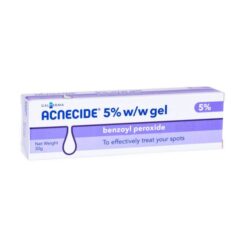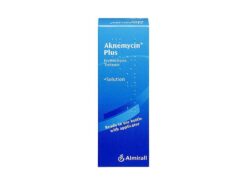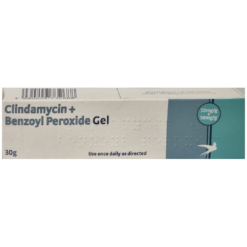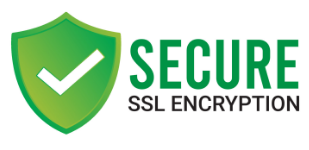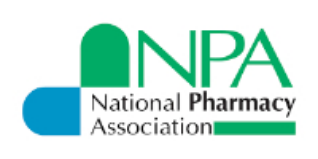-
NHS
-
Oldham Services
-
Shop
-
Help & Advice
-
Acne is one of the most common skin concerns causing unwanted spots, pimples, and scars. Both males and females experience this chronic skin condition during puberty and till the late 20s. The medical term is Acne Vulgaris, which refers to common acne that can affect the face, back, neck, chest, shoulder, and upper arms. This skin problem can affect self-esteem and confidence. However, the good news is acne treatment is available.
According to medical science, acne is an ailment of the chest, back, face, and neck areas of skin pores. Comedones (blackheads or whiteheads), red bumps (pimples), zits, bumps filled up with Pus (pustules) and cystic acne are the common symptoms of acne. Although these symptoms are typical, young adults can spend hundreds of pounds on ineffective treatment. So the first step is to understand what acne is.
There are lots of reasons that can cause acne. This can range from an unhealthy lifestyle to hormonal imbalance or a combination of factors that may make a person prone to this skin condition. The sebaceous glands are stimulated during puberty, hence why acne is expected during this stage of life. However, it can happen at the later ages of puberty due to hereditary factors, hormonal problems, and many other reasons. The sebaceous gland is responsible for producing oil and overproduction can lead to pores becoming blocked, infected and inflamed. As a result, an individual experiences acne and related symptoms. Though these are not life-threatening problems, acne can leave unsightly scars if severe or picked.
There are other skin conditions similar to acne but require different treatments. We have briefly described these conditions:
It’s a skin condition characterised by pimples though these are not acne in the traditional sense. In this skin disorder, spots appear on the middle third portion of the face with extreme redness. Treatment is usually with creams such as Azelaic Acid – Finacea gel (https://click2pharmacy.co.uk/product/finacea-gel-azelaic-acid-30g/) or metronidazole gel. Alternatively, Oral antibiotics can be used, such as Doxycycline capsules
These are razor bumps or rashes but look-alike the symptoms of acne. Patients suffering from acne can also experience this skin problem often. Treatment is generally a course of oral antibiotics.
Pimples sometimes appear on the abdomen, legs, and buttocks. These are not acne but inflamed hair follicles. Sometimes, they resolve on their own, but if persistent, a course of oral antibiotics is required. Good skin hygiene is essential to prevent folliculitis.
It’s a common question among patients suffering from acne. The truth is that it is not so clear why some individuals get acne. It’s a common skin concern during puberty, but everyone does not experience this problem. We know it’s due to the overproduction of oil from the sebaceous glands, but it is unknown why some patients are prone to this more so than others. Research says that androgen hormones or male hormones play a significant role. During puberty, the androgen hormone increases and enlarges the sebaceous glands. These result in more sebum secretion, causing an increased risk of blocked pores with skin debris. This can cause blackheads or whiteheads or inflamed acne, which occurs on oily skin commonly. Starting or a pause on administering the contraceptive pills can also cause hormonal changes and acne eruption.
Cosmetic products such as make-up can block pores leading to increase acne. Using acne friendly make-up is advised. Harsh scrubbing, squeezing blemishes, changes in hormone level and extreme stress can make acne symptoms worse.
Often people think that foods such as a high-carbohydrate diet, oily, fried, and junk foods play an important role in acne. However, there is no evidence for this. Healthy nutrition is good for the skin overall, along with good hydration. Also, if you suffer from acne-prone skin, choose skincare and cosmetics products that are non-comedogenic.
Let’s find out about acne treatments.
Visit the NHS website to learn more about acne
Often people follow home remedies to treat acne. For mild acne, this may work but at some stage, prescription treatments may be required. Follow a step-by-step procedure to get the best out of your treatments. The treatment procedures include over-the-counter topical treatment products, topical prescription treatments and oral medication.
/*! elementor – v3.19.0 – 26-02-2024 */
.elementor-widget-image{text-align:center}.elementor-widget-image a{display:inline-block}.elementor-widget-image a img[src$=”.svg”]{width:48px}.elementor-widget-image img{vertical-align:middle;display:inline-block}
The most common products include acetic acid, salicylic acid, sulphur, and benzoyl peroxide. All these effectively treat acne and related skin conditions such as blackheads, whiteheads, pustules, etc. You can find these medical products in the form of gels, creams, lotions, pads, and soaps. Treatment is effective if used regularly for 4-8 weeks, giving you better results.
We can prescribe effective prescription acne treatments from our Online Clinic such as:
Complete an easy 2 minutes consultation and once approved by our prescribers, prescription medication will be delivered to your door.
Oral antibiotics can be prescribed to control more severe or widespread acne. Lymecycline is one of the most commonly used medications and is taken once a day for 12 weeks. Doxycycline capsules are the alternative which is also suitable for Rosacea Acne. Treatment focuses on the bacteria responsible for infected the pores of the skin
Visit our online clinic for more information on Acne and Prescription-strength treatments
